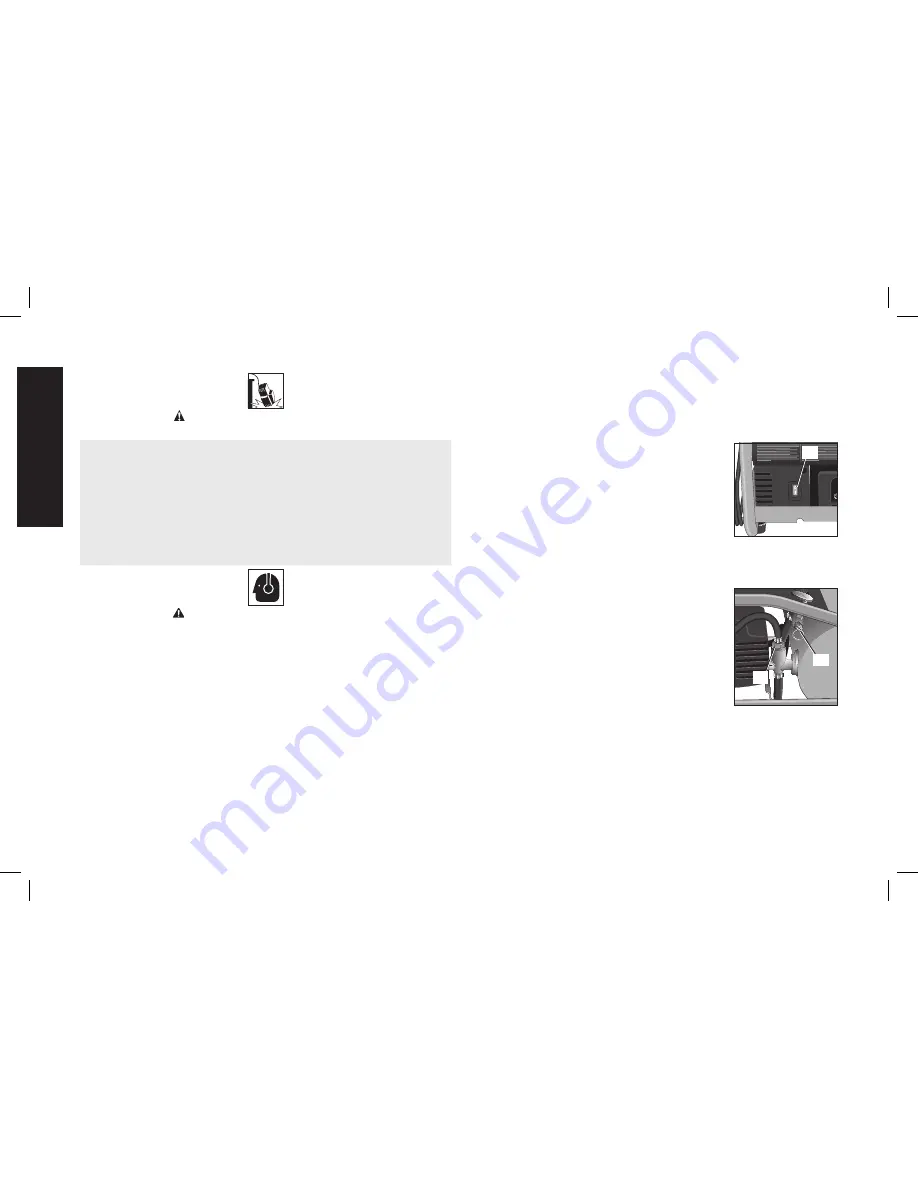
8
English
WARNING:
RISk Of fAllING
WHAt CAn HAPPen
HOW tO PreVent It
• A portable compressor can
fall from a table, workbench,
or roof causing damage to
the compressor and could
result in serious injury or
death to the operator.
• Always operate compressor
in a stable secure position to
prevent accidental movement
of the unit. Never operate
compressor on a roof or
other elevated position. Use
additional air hose to reach
high locations.
CAUTION:
RISk fROm NOISE
WHAt CAn HAPPen
HOW tO PreVent It
• Under some conditions and
duration of use, noise from
this product may contribute
to hearing loss.
• Always wear certified safety
equipment: ANSI S12.6
(S3.19) hearing protection.
SAvE ThESE InSTruCTIonS
For FuTurE uSE
FEATurES
On (I) / OFF (O) sWItCH
Place this switch (A) in the ON (I) position to
A
provide automatic power to the pressure switch
and OFF (O) to remove power at the end of
each use.
Pressure sWItCH
The pressure switch automatically starts the
motor when the air tank pressure drops below
the factory set
cut-in
pressure. It stops the motor when the air tank
pressure reaches the factory set
cut-out
pressure.
sAFety VAlVe
If the pressure switch does not shut off the air
G
F
compressor at its cut-out pressure setting, the
safety valve (G) will protect against high
pressure by popping out at its factory set
pressure (slightly higher than the pressure
switch cut-out setting).
CHeCk VAlVe
When the air compressor is operating, the
check valve (F) is open, allowing compressed air to enter the air
tank. When the air compressor reaches cut-out pressure, the check
valve closes, allowing air pressure to remain inside the air tank.
Summary of Contents for D55141
Page 55: ......









































